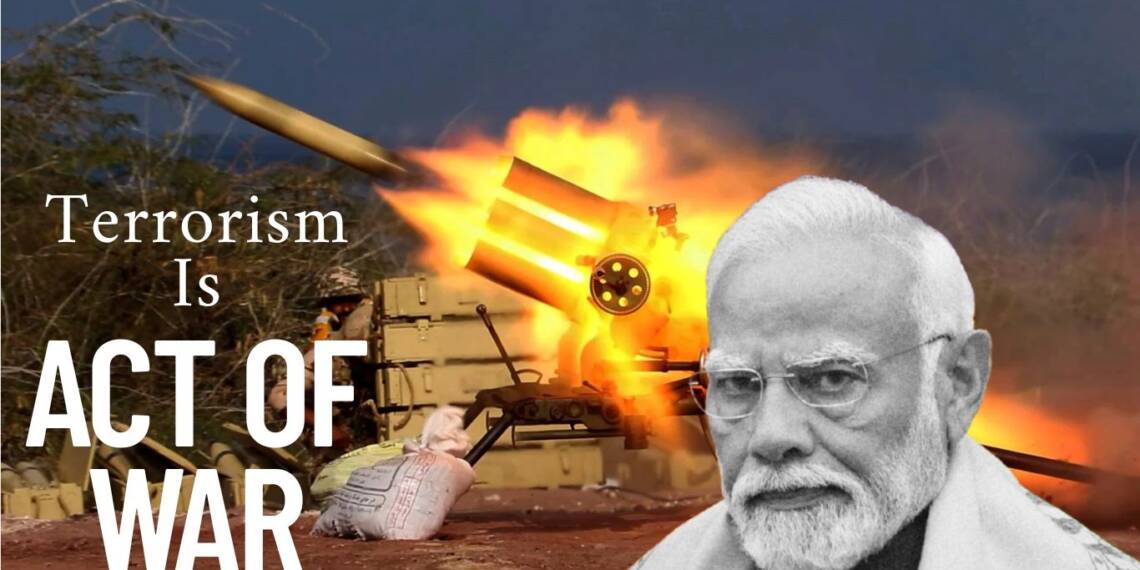In a major shift in its national security and foreign policy posture, the Government of India has officially declared that any future act of terrorism targeting Indian interests will be treated as an Act of War. The move signals a tougher and more assertive approach towards terrorism, especially when linked to state-sponsored actors like those operating from Pakistan.
The announcement comes amid the most serious military confrontation between India and Pakistan in recent days. In response to the terrorist attack in Phalgam by the Pakistani-backed terrorist outfits on April 22. India responded by targeting terrorist outfits in Pakistan-Occupied Kashmir by launching Operation Sindoor. In the previous two days, Pakistan has attacked indian Military and civilian infrastructure with a Drone and a short-range ballistic missile, which indian defence systems intercepted and destroyed.
In a joint press briefing, Indian Army Colonel Sofiya Qureshi confirmed that Indian Air Force jets destroyed six key Pakistani airbases: Murid, Rafiqui, Nur Khan (Chaklala), Rahimyar, Sukkur (Bholari), and Chunian. Radar sites at Pasrur and Sialkot were also hit. The Indian military described these strikes as precision operations in response to Pakistan’s deliberate targeting of civilian and military infrastructure across Punjab, Jammu & Kashmir, and other regions.
“Pakistan has shown reckless disregard for civilian life by targeting hospitals and schools on military bases,” Colonel Qureshi stated. Indian forces, she added, successfully neutralized incoming threat using advanced weaponry, preventing major casualties.
Wing Commander Vyomika Singh added that Pakistan had been deploying troops to forward areas along the border, raising the risk of further escalation. Intermittent firing along the Line of Control (LoC) continues, with both countries on high alert.
Other Nations who consider Terrorism as ‘Act of War’
This recent conflict highlights a significant transformation in India’s approach to terrorism and regional security. Traditionally, India treated terror attacks—like those in Mumbai (2008), Pathankot (2016), and Pulwama (2019)—as security threats with limited military responses. But this new policy draws a firm red line: terrorist attacks, especially those backed by state actors, will be met with decisive military retaliation.
India now joins a group of nations that treat terrorism as an act of war. The United States adopted this stance after the 9/11 attacks, launching the War on Terror and invading Afghanistan. France called the 2015 Paris attacks an act of war, leading to strikes in Syria. Israel, facing constant threats from Hamas and Hezbollah, routinely responds to terror attacks with full-scale military operations. Russia, too, has treated jihadist attacks as war-like actions, particularly in Chechnya and Syria.
India’s revised doctrine represents not just a tactical shift but a broader strategic recalibration. It blends security with foreign policy—sending a clear message to both adversaries and allies that India will no longer tolerate terrorism as a low-cost strategy against its sovereignty. This is a big step towards fighting and exposing global terrorism by using military capabilities. It’s a clear message to Pakistan and those who are supporting Pakistan that India will not tolerate terrorism and will consider it as a ‘Act of War’.








